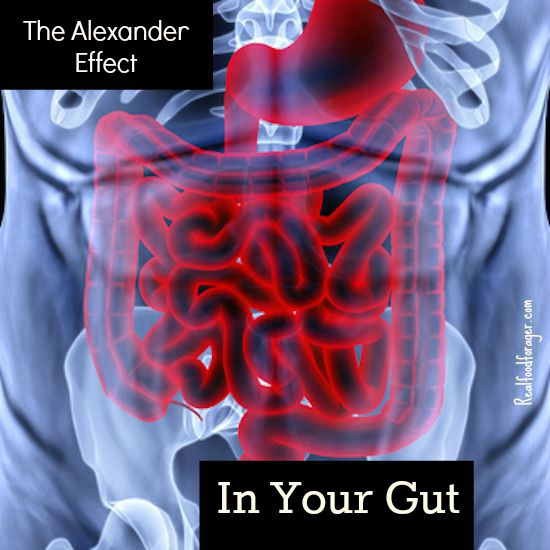Who do you live with? We as humans live in symbiosis with millions of microbes – it’s the body ecology that we nourish that will keep us healthy. The body houses a veritable rain forest of diversity that is teaming with microorganisms. These tiny organisms are as complex as the amazon and just as threatened.
Which Organisms are There?
This is known as taxonomy or classification of organisms. The body houses 30 to 100 trillion bacteria, which is 10 times the amount of human cells in the body.
There are 1000 species of bacteria, fungi (called the mycobiome), viruses (virome), as well as protozoa and helminthes (which are missing in the industrialized world – see the Hygiene Hypothesis.)
What Do These Organisms Do?
According to Dr. Leo Galland, there are three main functions of the gut microbiome. (source)
1- The gut microbiome has an impact on the immune system. Microbes affect immunity just by their presence. Their presence stimulates the immune and nervous system. The brain and hormones respond to this immune excitation. If there is excessive stimulation produced by dysbiosis, bacterial overgrowth, leaky gut, etc., there can be systemic and/or central nervous system inflammation.
2- Gut bacteria directly stimulate afferent neurons of the enteric nervous system (located in the gut) and send signals to the brain via the vagus nerve. This is how the gut bacteria can influence function of brain and create problems in mental health.
3- Microbes in the gut constitute a huge chemical factory producing thousands of substances. Gut microbes can produce hormones and neurotransmitters that are identical to those produced by humans. It has be shown that germ free animals have 1% the variety of chemical substances in their gut.
All these chemicals impact all the other systems and functions (immune, endocrine, etc.) in the body. There are certain core functions that are taken care of by these microbes.
As noted in a previous post about beneficial bacteria, they perform many essential services and we can no longer ignore the incredible impact our microbiome has on our physical and mental health.
The Alexander Effect
Dr. Galland has coined a new term called the Alexander Effect. Historically Alexander of Macedonia conquered many other surrounding tribes. He did this by being able to organize many different troops.
Examples of the Alexander Effect involve weight control and the effects of genes and the microbiome on body weight. A lot of the influence on body weight is genetic.
How does genetics shape the microbiome? Studies (The Swedish twin registry) have found that 30% of the composition of the microbiome is genetic and 70% is environmental and diet. The genetic component has to do with an organism called Christian cinella – these organisms are associated with lean body weight. They isolated this organism and fed it to mice and it found that it protected the mice from being obese.
This microorganism has driven more and more research into the link between obesity and gut microbes – particularly by companies who want to be the first to find a cure for obesity via microbe manipulation. That would be a huge money maker, don’t you think?
However, the results have been inconsistent. For a while it appeared that the relationship between the amounts of bacteroides and firmicutes was the answer, but that has not held up.
There was a study in 2013, reported on the National Institutes of Health website, in which identical twins (same genetics) – a lean twin and a heavy twin – had their gut microbes fed to germ free mice. The mice fed from the lean twin’s microbes became resistant to fat. The mice fed from the obese twin’s microbes easily became obese.
They tried to identify the organisms which were responsible. They tried using a probiotic with 35 strains and it had no effect. It appeared that the whole microbiome has to be present to be effective. This indicates that the gut microbes work in concert with each other.
However, now we know about the Christian cinella organism who can organize the whole microbiome for resistance to obesity. This is important because we can use this information to formulate therapeutic modalities to alter gut microbes to encourage the Alexander Effect.
This is a Critical Finding
We can now use this information to therapeutically alter gut microbes to encourage the growth of Alexander organisms – those organisms that can organize and direct other microbes.
One Alexander organism is Lactobacillus johnsnoii which was found to protect against allergies.
We know that people who are exposed to animals early in life are less likely to suffer from allergies. There was a study published in the Journal of Allergy and Clinical Immunology in which a group of mice were fed dog dust and another group wasn’t. The group that was fed the dog dust were not as sensitive to allergens.
The researchers took it a step further and tried to identify which microbes in the gut were present in the mice that were not sensitive. They isolated Lactobacillus johnsnoii This may very well be an Alexander organism.
Of course there are bad bacteria and there may be bad Alexander organisms. In some cases, antibiotics are needed to get rid of the bad bacteria in order for the probiotics to work.
What Shapes the Microbiome?
Inflammation has a huge impact on the microbiome. All states of illness are associated with inflammation and less diversity in the microbiome and overgrowth of proteo or entero bacteria like E. coli and Klebsiella. These are major human pathogens.
Inflammation involves the production of nitric oxide which becomes nitrate. In inflamed tissue there is an accumulation of nitrate and this supports growth with of proteo bacteria and pathogenic bacteria which are inflammatory in their effects.
This becomes a vicious cycle where a little inflammation leads to growth of inflammation-producing bacteria. You have to stop the cycle of inflammation and you have to deal with the bad bacteria.
This sounds like the basis of the SCD and GAPS diets.
Aside from diet, treatments may be antibiotics and/or antimicrobial herbs. Flavinoids also has a significant impact in shaping the gut flora.
You Can Change Your Microbiome in Just Weeks or A Few Months!
With bacteria having the ability to reproduce every 20 minutes, you CAN change your microbiome in just a matter of weeks or months if you focus on eating bacteria-rich foods.
Cultured foods are a traditional way of preserving food and getting beneficial bacteria into the gut consistently. Fermented food can be a benefit, but some folks are sensitive to fermented food. It has to be an individual approach.
Start to introduce homemade yogurt, coconut milk yogurt, kefir, kombucha, beet kvass, sauerkraut, and pickles just to name a few. Incorporate these fermented foods into your diet in small portions at first as they pack a powerful amount of bacteria that can set off a Herxheimer reaction, or die-off, if introduced too quickly.
Cultured foods taste good and hey, you may even lose some weight!
Those folks with a damaged microbiome may need more targeted treatments that restore the microbiome, such as Helminthic Therapy and Fecal Microbial Transplantation.
I find this new information about the microbiome so interesting don’t you?What do you do to nourish your microbiome? Leave a comment and let me know!
Further Reading
- New Study: A Compelling New Reason to Eat Fermented Foods
- 8 Reasons to Add Probiotic Foods to your Diet











